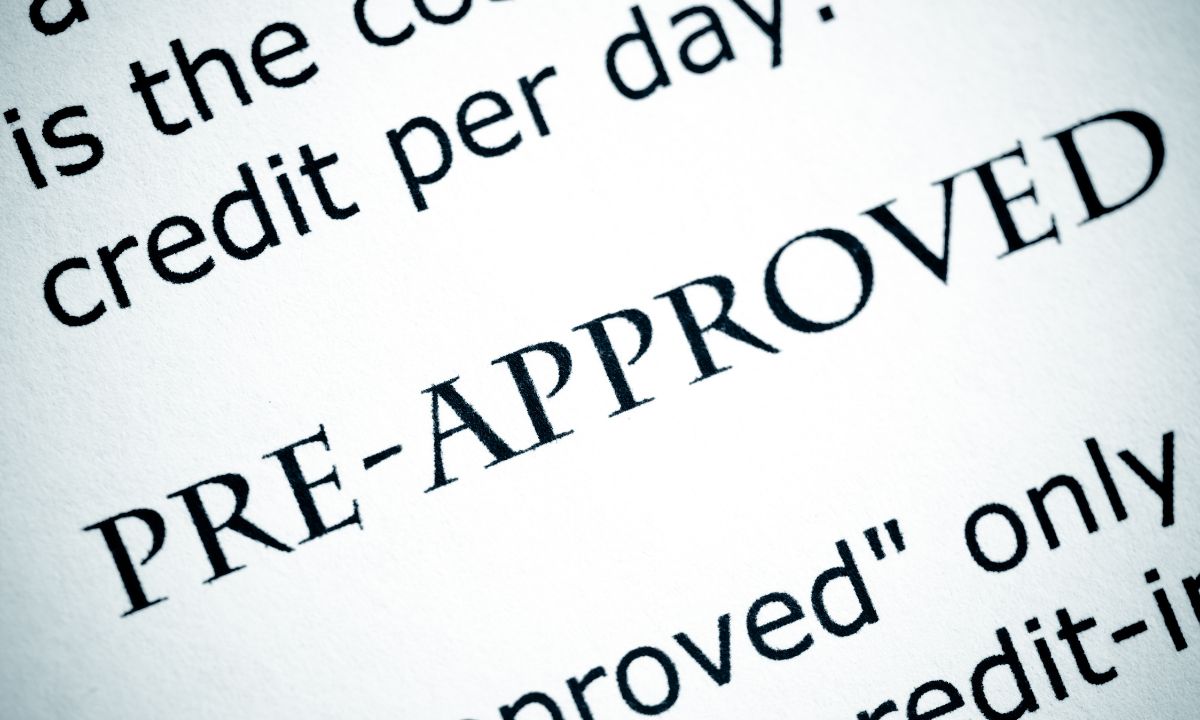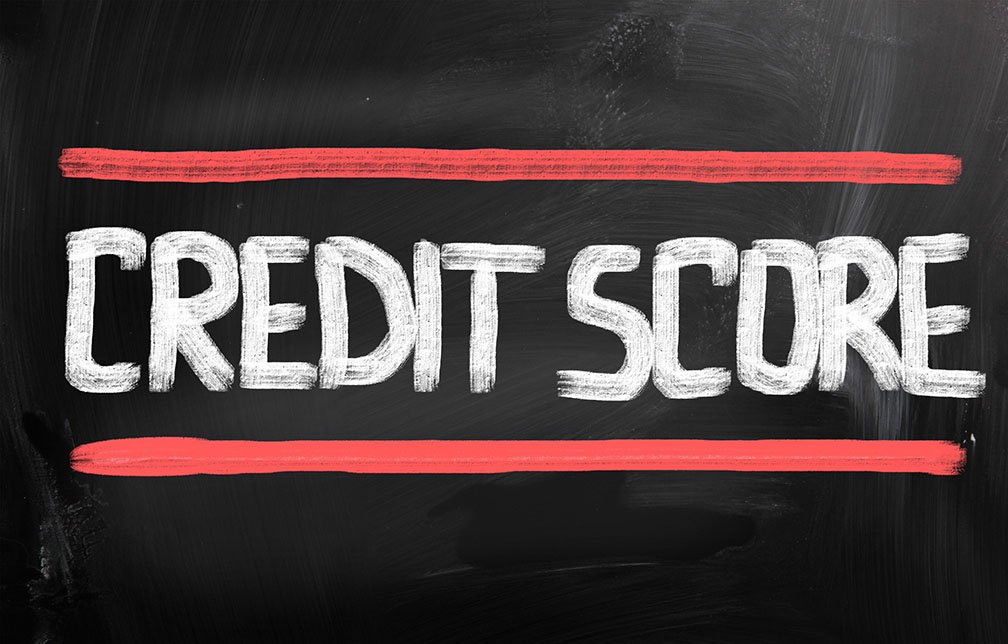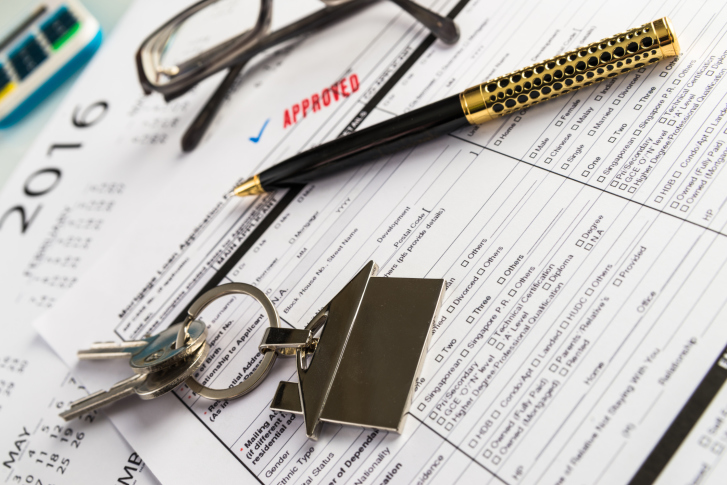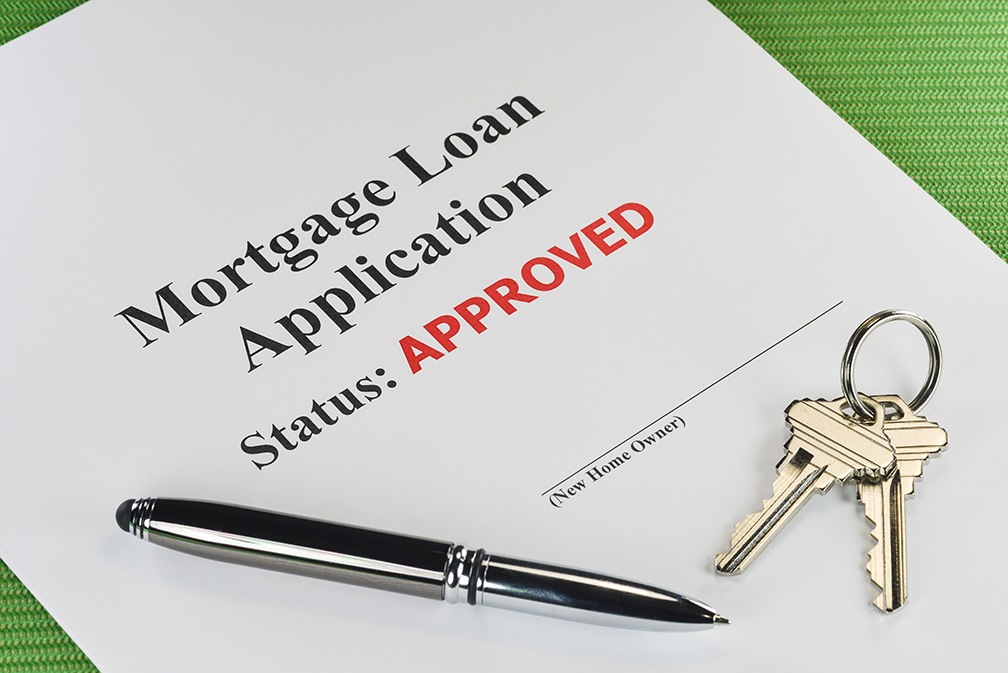 Buying a home is one of the biggest financial decisions you’ll ever make, and you want to make sure you’re as prepared as possible. Whether you’re just starting to browse homes or are ready to put in an offer, one of the most important steps you can take is getting preapproved for a mortgage. Not only does it streamline the home-buying process, but it also puts you in the best position to make a successful offer. Here’s why getting preapproved now, before you start your house hunt, can make all the difference.
Buying a home is one of the biggest financial decisions you’ll ever make, and you want to make sure you’re as prepared as possible. Whether you’re just starting to browse homes or are ready to put in an offer, one of the most important steps you can take is getting preapproved for a mortgage. Not only does it streamline the home-buying process, but it also puts you in the best position to make a successful offer. Here’s why getting preapproved now, before you start your house hunt, can make all the difference.
What Does It Mean to Be Preapproved?
Preapproval means a lender has reviewed your financial situation in detail and has confirmed that you are eligible for a mortgage, up to a certain loan amount. Unlike pre-qualification, which is based on a quick estimate of your financial status, preapproval involves a thorough review of your income, credit history, debts, and assets.
To get preapproved, you will need to provide the following documentation:
- Proof of income: Pay stubs, W-2s, or tax returns to show your regular income.
- Bank statements and assets: Documentation of your savings, retirement accounts, or other assets that can be used for a down payment or closing costs.
- Credit report: Your credit score will determine the interest rate you qualify for and your ability to secure financing.
- Tax returns: Lenders often request your past two years of tax returns to verify your income history and assess your financial stability.
- Employment verification: A letter from your employer confirming your job and salary.
- ID: A government-issued ID like a driver’s license or state ID.
- Gift letters: If you’re receiving financial help from family or friends, you may need to provide a gift letter to confirm it’s not a loan.
Preapproved vs. Prequalified: What’s the Difference?
While you might come across the term prequalification during your home search, it’s important to understand the distinction between being prequalified and preapproved.
Prequalification is a simpler process where the lender gathers basic financial information to give you a rough estimate of how much you can borrow. However, it doesn’t carry the same weight as preapproval. Prequalification can be helpful if you’re just beginning to look at homes, but it doesn’t carry the same authority or guarantee as preapproval.
Preapproval, on the other hand, is a more detailed and formal process. Since it involves submitting documentation and having your financial information reviewed by the lender, it offers a more accurate picture of what you can afford. A preapproval letter gives you a competitive edge, especially in a competitive housing market.
Why Getting Preapproved Now Makes a Big Difference
- Know Your Budget Upfront
One of the main benefits of getting preapproved is that it helps you understand exactly how much home you can afford. Without a clear budget, you might waste time looking at homes that are out of your price range. A pre-approval letter ensures you won’t fall in love with a house you can’t afford, saving you time and emotional energy. - Stand Out in a Competitive Market
If you’re in a market where multiple offers are common, having a preapproval letter can give you a distinct advantage. Sellers want to know that potential buyers can actually secure the financing needed to complete the transaction. If you show up with a pre-approval letter, you demonstrate that you’re a serious, qualified buyer. In many cases, sellers may choose an offer from a preapproved buyer over one from someone who hasn’t completed this step. - Faster Home Search and Closing
Preapproval can also speed up the home search process. In a competitive market, some real estate agents and sellers won’t even entertain offers from buyers who aren’t preapproved. When you have a pre-approval letter, you can immediately start making offers on homes you love. Furthermore, because the lender has already reviewed your financials, the closing process will likely go much faster, reducing the time between offer acceptance and homeownership. - Secure the Best Interest Rate
The better your financial position, the better the interest rate you can secure. A pre-approval takes into account your credit score, debt, and income to give you a solid picture of your potential loan terms. If you receive a pre-approval with favorable terms, it can give you an edge in negotiating the best deal. - Confidence in Your Offer
When you make an offer on a home, you want to feel confident that your financing will be approved. Preapproval gives you that peace of mind. You know that the lender has already done the homework and that you’re in a strong position to secure the loan you need.
How Preapproval Can Help You Make the Best Offer
In today’s housing market, being preapproved is almost a necessity. Without it, you may find yourself losing out on your dream home to another buyer who has already taken the necessary steps.
By getting preapproved before you even start your house hunt, you’ll save time, avoid frustration, and improve your chances of getting your offer accepted. While the process may take a little effort upfront, the benefits are well worth it. You’ll enter the market as a serious, prepared buyer — and that could be the key to getting the home you’ve always wanted.
If you’re thinking about buying a home, getting preapproved is your first step. Give us a call to see what options are available for you.
 Obtaining a pre-approval for a mortgage is an important step when you’re planning to buy a home. It gives you an idea of how much you can afford, helps streamline the home-buying process, and strengthens your position as a serious buyer. However, many people worry that the pre-approval process might negatively impact their credit score. In this blog post, we’ll dive into the details to determine whether or not a pre-approval for a mortgage will hurt your credit.
Obtaining a pre-approval for a mortgage is an important step when you’re planning to buy a home. It gives you an idea of how much you can afford, helps streamline the home-buying process, and strengthens your position as a serious buyer. However, many people worry that the pre-approval process might negatively impact their credit score. In this blog post, we’ll dive into the details to determine whether or not a pre-approval for a mortgage will hurt your credit. You just found your perfect home, and you feel like everything is right including the price. But, what could be wrong with your ideal home? Maybe, it is being sold as a short sale, and that could present a major challenge if you want to become be the eventual homeowner.
You just found your perfect home, and you feel like everything is right including the price. But, what could be wrong with your ideal home? Maybe, it is being sold as a short sale, and that could present a major challenge if you want to become be the eventual homeowner. If you want to buy a home in the near future, you are probably aware of just how competitive the housing market is. You need to put yourself in the best position possible to be successful by getting pre-approved for a home loan. This is a very important step, particularly when you compete against people making cash offers. Learn more about the importance of getting pre-approved below, and make sure your offer is taken seriously.
If you want to buy a home in the near future, you are probably aware of just how competitive the housing market is. You need to put yourself in the best position possible to be successful by getting pre-approved for a home loan. This is a very important step, particularly when you compete against people making cash offers. Learn more about the importance of getting pre-approved below, and make sure your offer is taken seriously. Putting a house on the market can be a major life decision. Even though there might be a bit of a change during this time, there are ways to deal with the stress. Even though home showings, negotiations, and constant phone calls from real estate agents can be a lot to handle, there are a few tips for dealing with the stress. What do homeowners need to know if they are selling a home?
Putting a house on the market can be a major life decision. Even though there might be a bit of a change during this time, there are ways to deal with the stress. Even though home showings, negotiations, and constant phone calls from real estate agents can be a lot to handle, there are a few tips for dealing with the stress. What do homeowners need to know if they are selling a home?  There are many people who set buying a home as one of their major life goals. There is a lot that comes with owning a home including a major investment opportunity, a sense of stability, and a feeling of pride; however, homes are also expensive. It can be challenging to find a home loan.
There are many people who set buying a home as one of their major life goals. There is a lot that comes with owning a home including a major investment opportunity, a sense of stability, and a feeling of pride; however, homes are also expensive. It can be challenging to find a home loan. Foreclosure is a process that happens over many months. There are various opportunities to acquire real estate that is in a different stage of foreclosure, including before the foreclosure process completes. This short guide identifies the different stages and the opportunities that may exist to acquire a property at a discounted price.
Foreclosure is a process that happens over many months. There are various opportunities to acquire real estate that is in a different stage of foreclosure, including before the foreclosure process completes. This short guide identifies the different stages and the opportunities that may exist to acquire a property at a discounted price. Most consumers believe if they pay their bills on time, they need not worry about their credit score. Oftentimes, it is a rude awakening when they apply for a mortgage loan, car loan, or any revolving credit to learn they are not going to get the lowest rates available due to their credit score. This is because paying bills on time only accounts for 35 percent of your credit score. The remaining 65 percent is spread out among other factors that impact your credit score.
Most consumers believe if they pay their bills on time, they need not worry about their credit score. Oftentimes, it is a rude awakening when they apply for a mortgage loan, car loan, or any revolving credit to learn they are not going to get the lowest rates available due to their credit score. This is because paying bills on time only accounts for 35 percent of your credit score. The remaining 65 percent is spread out among other factors that impact your credit score. When a homeowner stops making regular mortgage payments, the bank can foreclose on the property. This means that the bank takes possession of the property in an attempt to recover the debt the homeowner owes. In some cases, the bank may try to recover this debt by selling the property at auction. In other cases, the bank will simply list the foreclosed home for sale.
When a homeowner stops making regular mortgage payments, the bank can foreclose on the property. This means that the bank takes possession of the property in an attempt to recover the debt the homeowner owes. In some cases, the bank may try to recover this debt by selling the property at auction. In other cases, the bank will simply list the foreclosed home for sale. Buying your home can be nerve-racking, especially if it’s the first time. The buying process is exciting and often complex. The chances of making a mistake are relatively high.
Buying your home can be nerve-racking, especially if it’s the first time. The buying process is exciting and often complex. The chances of making a mistake are relatively high.